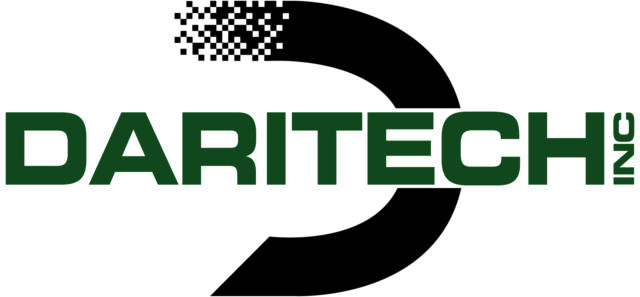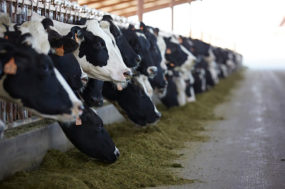
Canada’s Farm Progress Show, previously known as the Western Canada Farm Progress Show, is celebrating its 35th Anniversary this summer. The annual event is set to take place June 20-22 at Evraz Place in Regina, Saskatchewan.
Displays at Canada’s largest trade show include companies that manufacture agriculture equipment, crop inputs and ag services, including financial services. The show attracts visitors from the Prairie provinces, Eastern Canada, the U.S. and 45 other countries.
New this year at the show will be the Farm Progress Forum in the Queensbury Centre. The forum aims to educate farmers by presenting keynote speeches from reputable people in the field. Read below for an outline of each presentation by the speaker.

Dr. Raj Khosla
Distinguished Monfort Professor of Precision Agriculture
Colorado State University
Why is your topic important?
KHOSLA: My lab specializes in using precision techniques and technologies. How could we enhance the efficiency of inputs, such as water, nutrients, pesticides, seed, labour – whatever goes into the production system? How can we increase production?
That is extremely important because in another 40 years or so we’re going to cross 9 billion people on this planet. How can we increase profitability of the farmers? There has to be some motivation from the farmer side to engage in newer techniques and technologies.
What do you hope attendees will take away from this presentation?
KHOSLA: That global food security, or rather insecurity, is a colossal issue and no one country can really resolve that. We need to work together and every piece of ground matters.
I hope that the audience feels empowered, more informed and they get an insight that every individual or every organization or every cooperative can indeed make a difference at a local level for a challenge that is global in nature.

Dr. Sylvain Charlebois
The Acting Dean and Professor in the College of Management and Economics
University of Guelph
Why is your topic important?
CHARLEBOIS: When it comes to food safety, the industrialized world is at a crossroad. It is time to look at the role of government in risk mitigation and risk monitoring. We need to determine what kind of partnership the industry needs to establish with government.
What do you hope attendees will take away from this presentation?
CHARLEBOIS: They need to think about food safety from a strategic standpoint. It is not about doing something to comply with policy.
It’s about understanding consumers and what is at stake in the future. That risk will be holistic. We are importing more and working with other countries. We need to be better at monitoring risk. What we are doing today won’t be adequate for tomorrow.

Murad Al-Katib
President and Chief Executive Officer
Alliance Grain Traders Inc.
Why is your topic important?
AL-KATIB: Over the past decade, the agricultural sector has undergone dramatic change and growth. The family farm is changing and agriculture is moving beyond the “breadbasket” and into other sectors like the environment, immigration, energy and health.
As the business of agriculture changes it is becoming a key component to food security. Opportunities do exist for the entire agri-food sector and all participants, from farmers to processors, have an opportunity to participate and benefit from the rural renaissance we are currently in.
What do you hope attendees will take away from this presentation?
AL-KATIB: An understanding of how the products growers produce fit into the agri-food sector creating opportunities for themselves, as well as how food companies are responding to consumer demand for healthy, nutritious and natural food products.

Jolene Brown
Spokesperson and champion for the people of agriculture
Why is your topic important?
BROWN: There’s nothing better…or worse, than farming with family! Conversations are assumed to be contracts. Work is transitioned but not leadership and ownership.
Generational expectations, undefined goals and personalities clash. Entitlement thinking, sweat equity and estates conflict. Before we know it, we have family fighting on the way to the funeral home!
During this high-value, interactive keynote, I will share lessons learned from working with hundreds of farm families. It’s time to address the most important resource of the business, the “people.” After all it’s the people that make all the production happen.
What do you hope attendees will take away from this presentation?
BROWN: If you want to honour the family, you must do the business right! At this keynote, attendees will learn:
- the top ten mistakes of family business;
- the value of four specific management tools that build a strong working team;
- to hire family members well because it’s hard to fire them;
- sustained profitability, productivity and peace of mind require careful transition of the management, leadership and ownership;
- laughter, appreciation and celebration honour the family and sustain a successful business.

Derek Sliworsky
General Manager
The Canadian Wheat Board Tokyo Office
Why is your topic important?
SLIWORSKY: Grain marketing in Western Canada is going through the most pivotal transition that it has seen in more than a generation.
We are going from a single desk marketing environment, which has been in place for almost 70 years, towards an environment with many grain companies involved and many sellers of your product. The Canadian Wheat Board (CWB) wants to provide certainty and familiarity in this new uncertain and unfamiliar environment.
What do you hope attendees will take away from this presentation?
SLIWORSKY: I hope that attendees recognize that the CWB is seeking as much farmer input as possible in developing marketing and contract programs.
This is a difficult and unknown environment for all players in the industry, especially the producers. I hope to provide some perspective on who some of the actual buyers of their products are, what buyers look for when buying Canadian wheat and some discussion about how the CWB is competing within the current and forward environment.

Dave Sauchyn
Research Professor at the Prairie Adaptation Research Collaborative (PARC)
University of Regina
Why is your topic important?
SAUCHYN: The topic of my talk will be changes to the climate and water supplies in Western Canada. This is of obvious interest to the agricultural industry.
I will present the results of research that we’ve done at the University of Regina on the variability of our climate and water over the past 1,000 years and what we might expect in the near future.
What do you hope attendees will take away from this presentation?
SAUCHYN: I hope that the attendees take away that the climate is always changing and there are strong natural cycles in our water and climate that we don’t always recognize.
Most of what we experience are cycles that have occurred for thousand of years; but we also detect a human influence on the global and local climate. PD









